
David Jones is donating its archive to Sydney’s Powerhouse Museum, it has been announced today. It is a timely reminder of the significance of “DJs”, Australia’s oldest department store, to the development of modern Australia.
David Jones’ archive was overseen by Barbara Horton for 35 years.
Since she retired in 2010, David Jones has changed hands several times and the archive, holding over 185 years of history, has been locked away with limited access.
Thankfully, DJs’ heritage is now secure for the future and access to this significant cultural asset will again be possible.
The shaping of an emporium
Archives are important records of our past. They help us to tell stories about how we developed, lived and learned – and the David Jones archive is brimming with forgotten stories of Australia’s past.
DJs opened its first store in Sydney’s George Street in 1838 selling fabrics, clothing and haberdashery.
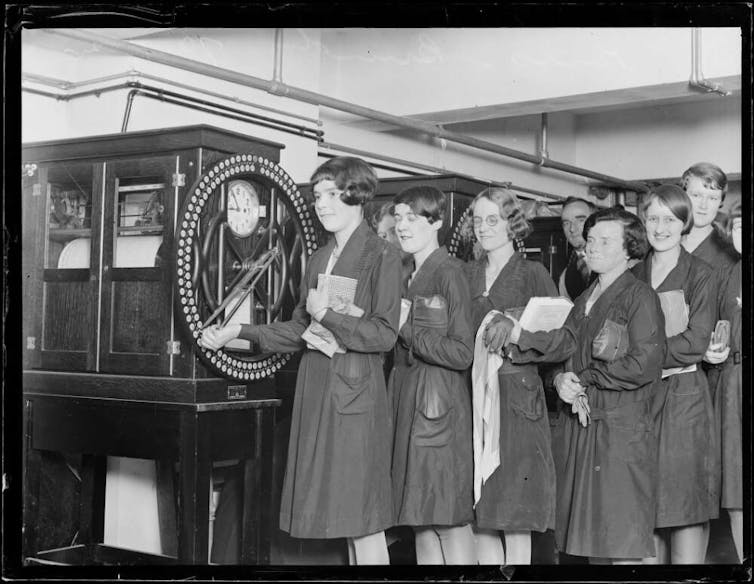
Mail order began in 1887, a clothing factory in Surry Hills followed in 1914 and three Sydney stores by 1938. The first interstate stores opened in Perth and Brisbane in 1954.
Of particular interest in the archive are the papers of David Jones’ chairman from 1920 to 1958, Sir Charles Lloyd Jones, or CL as he was known.
These papers reveal a remarkable story of good business and good will. The grandson of founder David Jones, CL was an innovator in department stores not just in Australia, but the world.
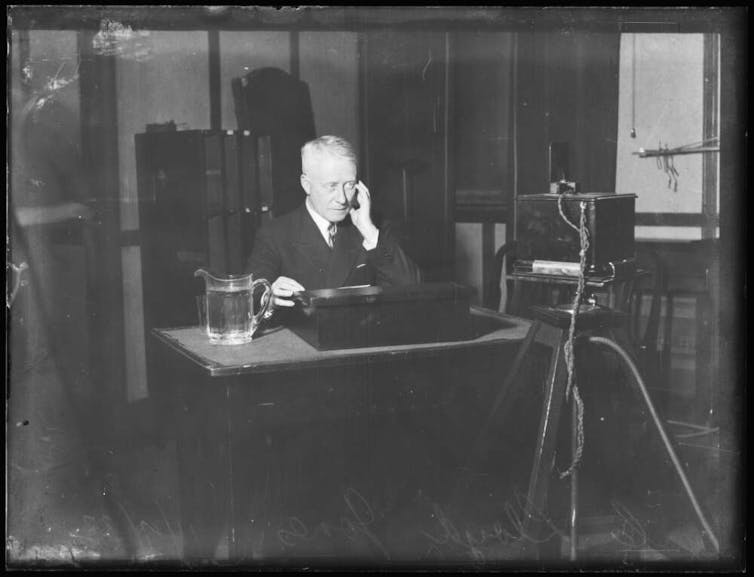
Trained as an artist at Julian Ashton’s Sydney Art School and a lifelong patron of the arts, CL saw the store as more than a business. His vision for the stores was one of an institution displaying art and culture and a window to the world.
He established the David Jones Art Gallery in 1928, an early promoter of modern art and design.

He pioneered modern advertising at DJs in 1902, bringing American trends of larger ads with white space and illustrations to Australia.
CL employed artists and copywriters to realise this and by the 1950s, DJs’ advertising department was run by Sydney’s leading ad women – long before the “mad” men of the 1960s.
His background as an artist, passion for marketing and the welfare of his workers set DJs apart from its competitors.
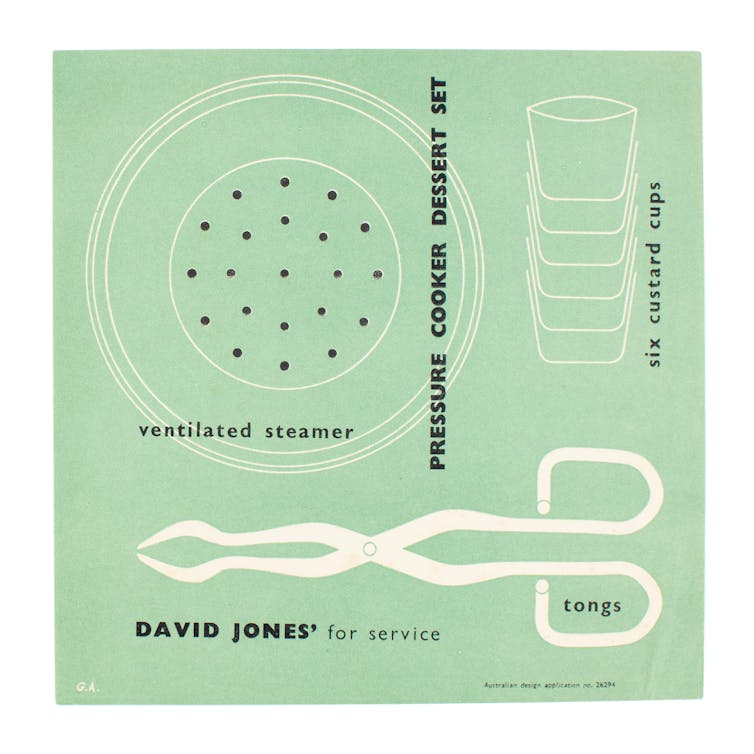
With the opening of the Elizabeth Street store in 1927, staff could relax in a staff lounge and order subsidised meals from DJs’ Great Restaurant. They enjoyed a 15% staff discount, above award leave entitlements, long service bonuses, subsidised training opportunities, in house medical and dental, and an annual ball.
Things were done differently. There was a level of creativity and style across every facet of the business that few stores could match.
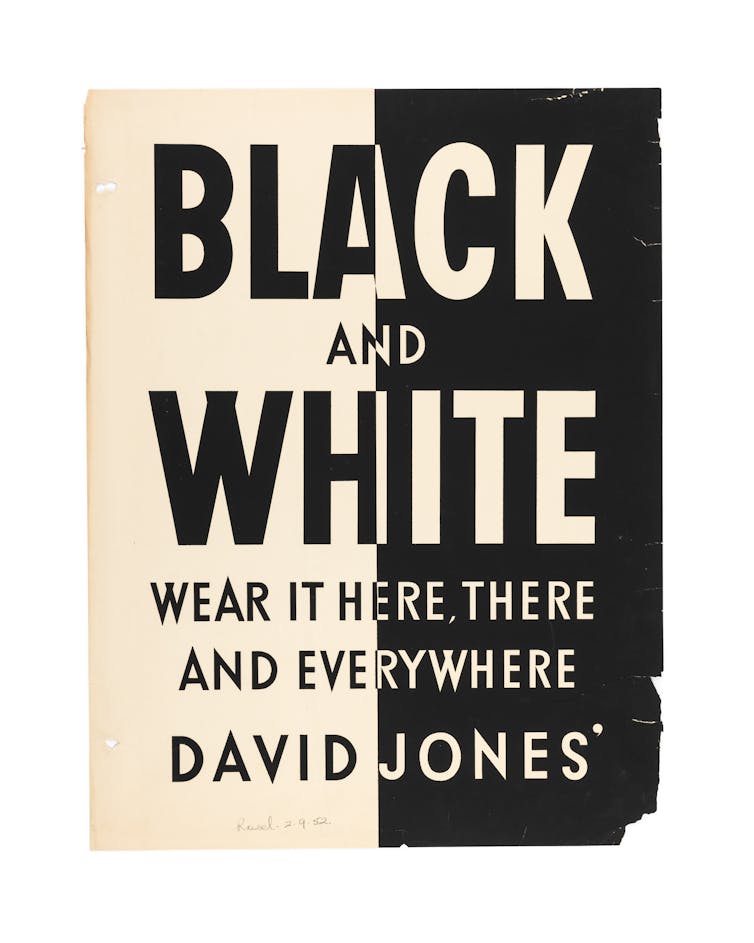
Creative Australia
The archive contains connections between DJs and some of Australia’s great creative minds.
There are links to members of the Sydney Push group, Max Dupain’s iconic photographs and Gordon Andrews’ distinctive brand and packaging design.
There are the designers Marion Hall Best, Dahl Collings and Douglas Annand – and a cast of other forgotten characters.
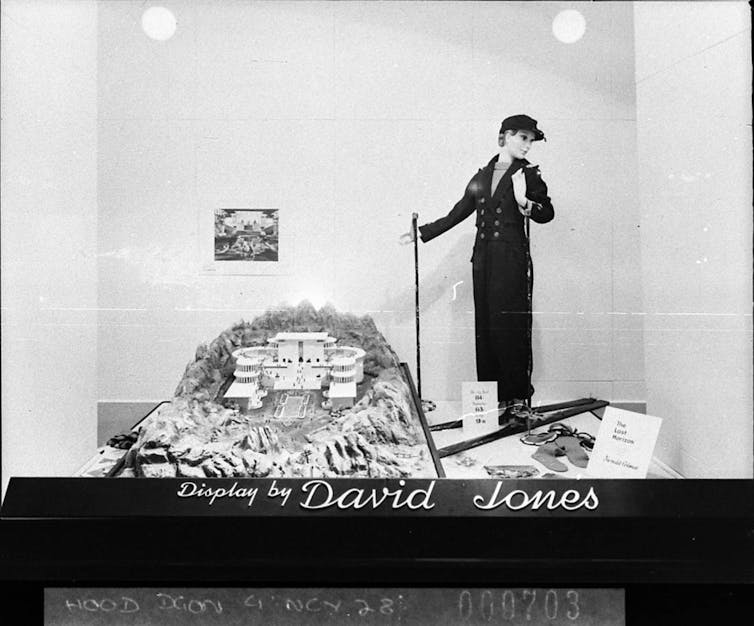
The David Jones Store News contains fascinating insights to a community of fiercely loyal staff known as “Dajoneans”.
The newspaper contains information about the staff amateur theatre group, choir, holiday competitions, travel, balls, weddings, retirements, births, deaths, store news from across Australia, courses and advice columns.
The archive also includes photographs of DJs’ theatrical window displays – and a story of one featuring a live python that escaped overnight.
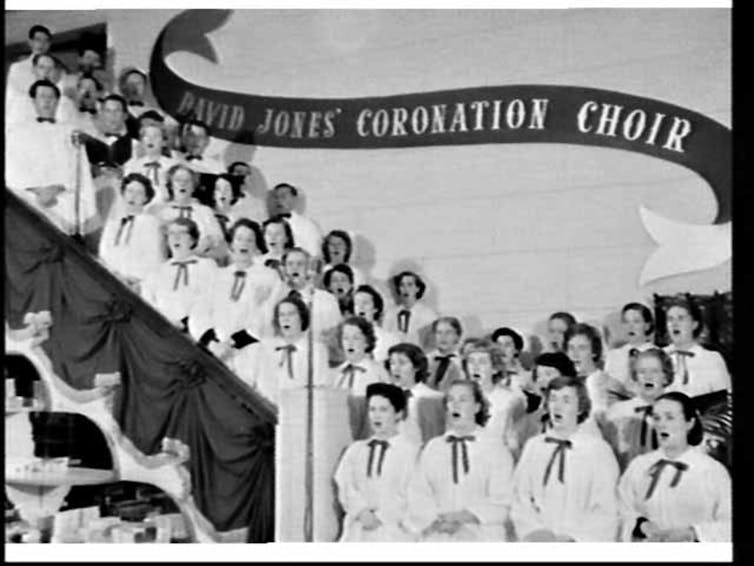
A window to the world
One of my favourite stories from the archive is that of the international exhibitions the stores once held, bringing international design and goods to Australian shoppers.
Inspired by American department store events, Sweden at David Jones opened in June 1954.

It was a huge exhibition seen by thousands of visitors from across Australia. Visitors ate smörgåsbord, marvelled at jet engines, saw the first Volvo in Australia and a SAAB Safir plane that was craned in through the windows of the fourth floor of the Market Street store to gobsmacked onlookers.
They saw a museum collection of Swedish glass, ceramics and furniture and a model home complete with a streamlined kitchen that – according to news reports – had women gasping and men secretly taking measurements. Gossip pages reported at Sydney’s chicest parties, “skål” had replaced cheers.

This was followed by Italy at David Jones in 1955 and 1966, before a host of other events including Asian, Mediterranean, American, Scandinavian, Danish, Finnish, German, British and more. Items shown in these events are already in national collections.
Uncovering stories
The Art Gallery of New South Wales holds 148 artworks acquired through DJs’ Art Gallery between 1928 and 1992, and the archive of David Jones Art Gallery was donated to the Art Gallery of New South Wales in 2012, where it became key to untangling the recent Asian art smuggling scandal.
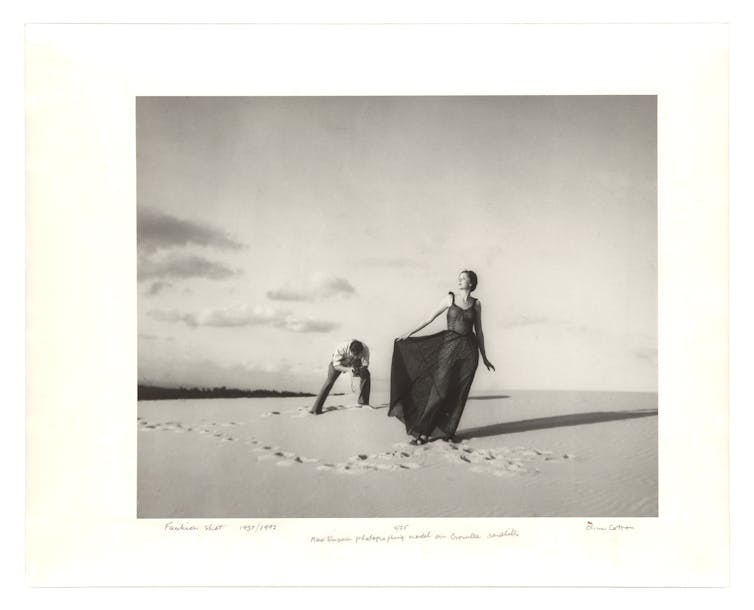
Now the rest of DJs’ archive will be secured and more accessible at Powerhouse, and more stories wait to be uncovered and told.
While the department store continues to transform, its history remains as a testament to its resilience and may provide clues as to how it might transform its future.
Objects from the archives are on display at the former David Jones Art Gallery on Level 8 of DJs’ Elizabeth Street store, Sydney, until August 25.
Mark Ian Jones was a Powerhouse Museum Visiting research Fellow in 2022.
This article was originally published on The Conversation. Read the original article.







